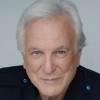The existence of inequality exposes everyone to the risk of being inferior, which in turn stimulates aggressive competition to inflict the inferior status on others (such as by enslaving, impoverishing, or degrading them). In other words, inequality stimulates shame and shame stimulates inequality; shame stimulates violence and violence stimulates shame; inequality leads to violence and violence leads to inequality.
James Gilligan (b. c. 1936) American psychiatrist and author
Preventing Violence, ch. 2 (2001)
(Source)
Quotations about:
inferiority
Note not all quotations have been tagged, so Search may find additional quotes on this topic.
What is at issue here is relative poverty, not absolute poverty. Inferiority is a relative concept. When everyone is poor together, there is no shame in being poor. As Marx said, it is not living in a hovel that causes people to feel ashamed, it is living in a hovel next to a palace. And as he also said, shame is the emotion of revolution, i.e. of violence. But one does not have to be a Marxist, or subscribe to everything he said (and I do not), in order to see how correct his insight was.
James Gilligan (b. c. 1936) American psychiatrist and author
Preventing Violence, ch. 5 (2001)
(Source)
‘Tis fear that proves souls base-born.
[Degeneres animos timor arguit.]
Virgil (70-19 BC) Roman poet [b. Publius Vergilius Maro; also Vergil]
The Aeneid [Ænē̆is], Book 4, l. 13 (4.13) [Dido] (29-19 BC) [tr. Fairclough (1916)]
(Source)
Of the bravery shown in Aeneas' tale demonstrating what a great, if not even divine, man he is.
(Source (Latin)). Alternate translations:
Feare shews degenerate minds.
[tr. Ogilby (1649)]
Fear ever argues a degenerate kind.
[tr. Dryden (1697)]
Fear argues a degenerate mind.
[tr. Davidson/Buckley (1854)]
Fear proves a base-born soul.
[tr. Connington (1866)]
Fear shows degenerate souls.
[tr. Cranch (1872)]
Fear proves the vulgar spirit.
[tr. Mackail (1885)]
For fear it is shows base-born souls.
[tr. Morris (1900)]
Fear argues souls degenerate and base.
[tr. Taylor (1907), st. 2, l. 14]
'Tis cowardice
betrays the base-born soul.
[tr. Williams (1910)]
Fear proves a bastard spirit.
[tr. Humphries (1951)]
Mean souls convict themselves by cowardice.
[tr. Day Lewis (1952)]
For in the face of fear
the mean must fall.
[tr. Mandelbaum (1971)]
Tell-tale fear
Betrays inferior souls.
[tr. Fitzgerald (1981), ll. 19-20]
If there is any baseness in a man, it shows as cowardice.
[tr. West (1990)]
Fear reveals the ignoble spirit.
[tr. Kline (2002)]
Fear
Always gives away men of inferior birth.
[tr. Lombardo (2005)]
Fear exposes the lowborn man at once.
[tr. Fagles (2006), l. 16]
Fear shows up lesser men.
[tr. Bartsch (2021)]
But we are as other men, exactly. Of one blood, one species, one brain, one figure, one fundamental set of collective instincts, one solitary body of information, one everything. Superiority and inferiority are individual, not racial or national.
Again, it is proper to the magnanimous person to ask for nothing, or hardly anything, but to help eagerly. When he meets people with good fortune or a reputation for worth, he displays his greatness, since superiority over them is difficult and impressive, and there is nothing ignoble in trying to be impressive with them. But when he meets ordinary people, he is moderate, since superiority over them is easy, and an attempt to be impressive among inferiors is as vulgar as a display of strength against the weak.
[μεγαλοψύχου δὲ καὶ τὸ μηδενὸς δεῖσθαι ἢ μόλις, ὑπηρετεῖν δὲ προθύμως, καὶ πρὸς μὲν τοὺς ἐν ἀξιώματι καὶ εὐτυχίαις μέγαν εἶναι, πρὸς δὲ τοὺς μέσους μέτριον: τῶν μὲν γὰρ ὑπερέχειν χαλεπὸν καὶ σεμνόν, τῶν δὲ ῥᾴδιον, καὶ ἐπ᾽ ἐκείνοις μὲν σεμνύνεσθαι οὐκ ἀγεννές, ἐν δὲ τοῖς ταπεινοῖς φορτικόν, ὥσπερ εἰς τοὺς ἀσθενεῖς ἰσχυρίζεσθαι.]
Aristotle (384-322 BC) Greek philosopher
Nicomachean Ethics [Ἠθικὰ Νικομάχεια], Book 4, ch. 3 (4.3.26) / 1124b.18 (c. 325 BC) [tr. Irwin (1999)]
(Source)
The core word Aristotle is using is μεγαλοψυχία (translated variously as high-mindedness, great-mindedness, pride, great-soulness, magnanimity). (Source (Greek)). Alternate translations:
Further, it is characteristic of the Great-minded man to ask favours not at all, or very reluctantly, but to do a service very readily; and to bear himself loftily towards the great or fortunate, but towards people of middle station affably; because to be above the former is difficult and so a grand thing, but to be above the latter is easy; and to be high and mighty towards the former is not ignoble, but to do it towards those of humble station would be low and vulgar; it would be like parading strength against the weak.
[tr. Chase (1847)]
It would seem, too, that the high-minded man asks favours of no one, or, at any rate, asks them with the greatest reluctance, but that he is always eager to do good offices to others; and that towards those in high position and prosperity he bears himself with pride, but towards ordinary men with moderation; for in the former case it is difficult to show superiority, and to do so is a lordly mater; whereas in the latter case it is easy. To be haughty among the great is no proof of bad breeding, but haughtiness among the lowly is as base-born a thing as it is to make trial of great strength upon the weak.
[tr. Williams (1869)]
It is characteristic too of the high-minded man that he never, or hardly ever, asks a favor, that he is ready to do anybody a service, and that, although his bearing is stately towards person of dignity and affluence, it is unassuming toward the middle class; for while it is a difficult and dignified thing to be superior to the former, it is easy enough to be superior to the latter, and while a dignified demeanour in dealing with the former is a mark of nobility, it is a mark of vulgarity ind ealing with the latter, as it like a display of physical strength at the expense of an invalid.
[tr. Welldon (1892), ch. 8]
It is characteristic of the high-minded man, again, never or reluctantly to ask favours, but to be ready to confer them, and to be lofty in his behaviour to those who are high in station and favoured by fortune, but affable to those of the middle ranks; for it is a difficult thing and a dignified thing to assert superiority over the former, but easy to assert it over the latter. A haughty demeanour in dealing with the great is quite consistent with good breeding, but in dealing with those of low estate is brutal, like showing off one’s strength upon a cripple.
[tr. Peters (1893)]
It is a mark of the proud man also to ask for nothing or scarcely anything, but to give help readily, and to be dignified towards people who enjoy high position and good fortune, but unassuming towards those of the middle class; for it is a difficult and lofty thing to be superior to the former, but easy to be so to the latter, and a lofty bearing over the former is no mark of ill-breeding, but among humble people it is as vulgar as a display of strength against the weak.
[tr. Ross (1908)]
It is also characteristic of the great-souled man never to ask help from others, or only with reluctance, but to render aid willingly; and to be haughty towards men of position and fortune, but courteous towards those of moderate station, because it is difficult and distinguished to be superior to the great, but easy to outdo the lowly, and to adopt a high manner with the former is not ill-bred, but it is vulgar to lord it over humble people: it is like putting forth one's strength against the weak.
[tr. Rackham (1934)]
It is also characteristic of a great-souled person to ask for nothing or hardly anything but to offer his services eagerly, and to exhibit his greatness to those with a reputation for great worth or those who are enjoying good luck, but to moderate his greatness to those in the middle. For it is a difficult and a dignified thing to show oneself superior to the former, but an easy one to do so to the latter, and, while adopting a dignified manner toward the former is not ill-bred, to do so toward humble people is vulgar, like displaying strength against the weak.
[tr. Reeve (1948)]
It is the mark of a high-minded man, too, never, or hardly ever, to ask for help, but to be of help to others readily, and to be dignified with men of high position or of good fortune, but unassuming with those of middle class, for it is difficult and impressive to be superior to the former, but easy to be so to the latter; and whereas being impressive to the former is not a mark of a lowly man, being so to the humble is crude -- it is like using physical force against the physically weak.
[tr. Apostle (1975)]
Another mark of the magnanimous man is that he never, or only reluctantly, makes a request, whereas he is eager to help others. He his haughty toward those who are influential and successful, but moderate toward those who have an intermediate position in society, because in the former case to be superior is difficult and impressive, but in the latter it is easy' and to create an impression at the expense of the former is not ill-bred, but to do so among the humble is vulgar.
[tr. Thomson/Tredennick (1976)]
It is also characteristic of a great-souled person to ask for nothing, or almost nothing, but to help others readily; and to be dignified in his behavior towards people of distinction or the well-off, but unassuming toward people at the middle level. Superiority over the first group is difficult and impressive, but over the second it is easy, and attempting to impress the first group is not ill-bred, while in the case of humble people it is vulgar, like a show of strength against the weak.
[tr. Crisp (2000)]
It belongs to the great-souled also to need nothing, or scarcely anything, but to be eager to be of service, and to be great in the presence of people of worth and good fortune, but measured toward those of a middling rank. For it is a difficult and august thing to be superior among the fortunate, but easy to be that way among the middling sorts; and to exalt oneself among the former is not a lowborn thing, but to do so among the latter is crude, just as is using one's strength against the weak.
[tr. Bartlett/Collins (2011)]
Sometimes paraphrased:
It is not ill-bred to adopt a high manner with the great and the powerful, but it is vulgar to lord it over humble people.
The weakness of the child is that it starts with a blank sheet. It neither understands nor questions the society in which it lives, and because of its credulity other people can work upon it, infecting it with the sense of inferiority and the dread of offending against mysterious, terrible laws.
To be a human being means to possess a feeling of inferiority which constantly presses towards its own conquest. … The greater the feeling of inferiority that has been experienced, the more powerful is the urge for conquest and the more violent the emotional agitation.
On the other hand, the cheapest form of pride is national pride; for the man affected therewith betrays a want of individual qualities of which he might be proud, since he would not otherwise resort to that which he shares with so many millions. The man who possesses outstanding personal qualities will rather see most clearly the faults of his own nation, for he has them constantly before his eyes. But every miserable fool, who has nothing in the world whereof he could be proud, resorts finally to being proud of the very nation to which he belongs. In this he finds compensation and is now ready and thankful to defend, “tooth and nail,” all the faults and follies peculiar to it.
[Die wohlfeilste Art des Stolzes hingegen ist der Nationalstolz. Denn er verrät in dem damit Behafteten den Mangel an individuellen Eigenschaften, auf die er stolz sein könnte, indem er sonst nicht zu dem greifen würde, was er mit so vielen Millionen teilt. Wer bedeutende persönliche Vorzüge besitzt, wird vielmehr die Fehler seiner eigenen Nation, da er sie beständig vor Augen hat, am deutlichsten erkennen. Aber jeder erbärmliche Tropf, der nichts in der Welt hat, darauf er stolz sein könnte, ergreift das letzte Mittel, auf die Nation, der er gerade angehört, stolz zu sein. Hieran erholt er sich und ist nun dankbarlich bereit, alle Fehler und Torheiten, die ihr eigen sind, mit Händen und Füßen zu verteidigen.]
Arthur Schopenhauer (1788-1860) German philosopher
Parerga and Paralipomena, Vol. 1, “Aphorisms on the Wisdom of Life [Aphorismen zur Lebensweisheit],” ch. 4 “From What One Imagines [Von dem, was einer vorstellt]” (1851) [tr. Payne (1974)]
(Source)
(Source (German)). Alternate translation:
The cheapest sort of pride is national pride; for if a man is proud of his own nation, it argues that he has no qualities of his own of which he can be proud; otherwise he would not have recourse to those which he shares with so many millions of his fellowmen. The man who is endowed with important personal qualities will be only too ready to see clearly in what respects his own nation falls short, since their failings will be constantly before his eyes. But every miserable fool who has nothing at all of which he can be proud adopts, as a last resource, pride in the nation to which he belongs; he is ready and glad to defend all its faults and follies tooth and nail, thus reimbursing himself for his own inferiority.
[tr. Saunders (1890)]
The cheapest form of pride however is national pride. For it betrays in the one thus afflicted the lack of individual qualities of which he could be proud, while he would not otherwise reach for what he shares with so many millions. He who possesses significant personal merits will rather recognise the defects of his own nation, as he has them constantly before his eyes, most clearly. But that poor beggar who has nothing in the world of which he can be proud, latches onto the last means of being proud, the nation to which he belongs to. Thus he recovers and is now in gratitude ready to defend with hands and feet all errors and follies which are its own.
[Source]
No! I am not Prince Hamlet, nor was meant to be;
Am an attendant lord, one that will do
To swell a progress, start a scene or two,
Advise the prince; no doubt, an easy tool,
Deferential, glad to be of use,
Politic, cautious, and meticulous;
Full of high sentence, but a bit obtuse;
At times, indeed, almost ridiculous —
Almost, at times, the Fool.









